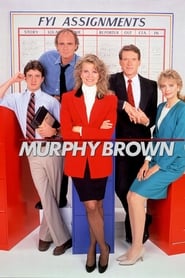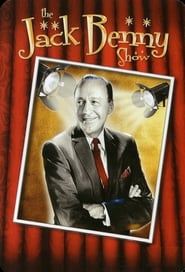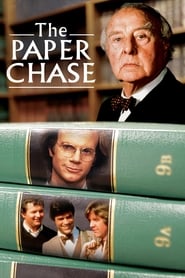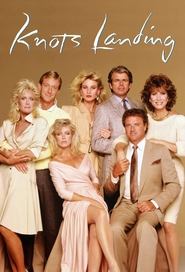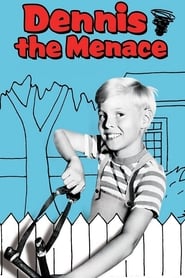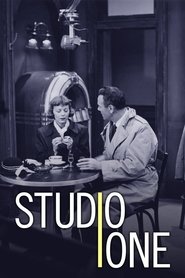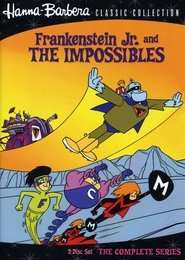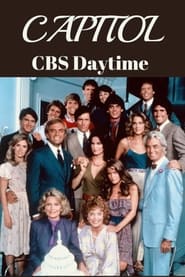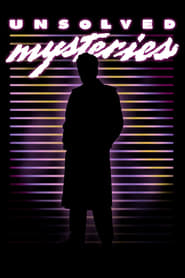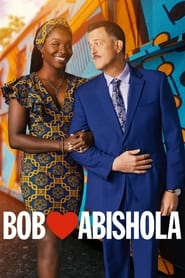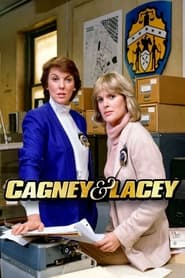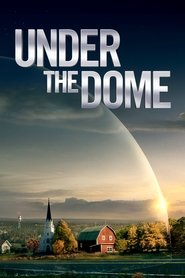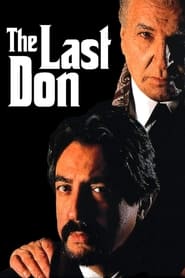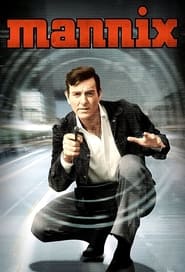Cbs TV Series - Page 9
-
Murphy Brown
1988
star 6.4Murphy Brown (Candice Bergen) is a recovering alcoholic who returns to the fictional newsmagazine FYI for the first time following a stay at the Betty Ford Clinic residential treatment center. Over 40 and single, she is sharp tongued and hard as nails. In her profession, she is considered one of the boys, having shattered many glass ceilings encountered during her career. Dominating the FYI news magazine, she is portrayed as one of America's hardest-hitting (though not the warmest or more sympathetic) media personalities. -
The Jack Benny Program
1950
star 7.7Laugh along with funnyman Jack Benny as he brings his underplayed humor to TV along with regular performers from his radio show days. -
The Paper Chase
1978
star 7.6Critically lauded drama about the life and pressures of a group of students at a prestigious Eastern law school, with a strict and domineering contract-law professor named Charles Kingsfield, who alternately inspires and terrifies the students. -
Knots Landing
1979
star 6.7The domestic adventures, misdeeds and everyday interactions of five families living on a cul-de-sac in a small California community. -
Dennis the Menace
1959
star 6.5This 1959-1963 television situation comedy series follows the lives of the Mitchell family, Henry, Alice, and their only child Dennis, an energetic, trouble-prone, mischievous, but well-meaning boy, who often tangles with his peace-and-quiet-loving neighbor George Wilson, a retired salesman, or, later, with George's brother John, a writer. Dennis is basically a good, well-intentioned boy who always tries to help people, but who winds up making situations worse – often at Mr. Wilson's expense. -
Love of Life
1951
star 5Love of Life is an American soap opera which aired on CBS from September 24, 1951, to February 1, 1980. It was created by Roy Winsor, whose previous creation Search for Tomorrow had premiered three weeks before Love of Life, and who would go on to create The Secret Storm two and a half years later. -
Studio One
1948
star 4.7An American radio–television anthology series, created in 1947 by Canadian director Fletcher Markle, who came to CBS from the CBC. Studio One, presented by Westinghouse, was one of the first of the anthology TV programs. The episodes were often abridged remakes of movies from years gone by and many future well-known television and movie actors appeared in the productions. -
Frankenstein, Jr. and The Impossibles
1966
star 6.8Boy genius Buzz Conroy’s powerful robot, Frankenstein Jr. cranks into action along with a group of crime fighting superheroes disguised as a beatnik rock group, The Impossibles, making hot-rockin’ musical justice! -
Diagnosis: Murder
1993
star 7.1Dr. Mark Sloan is a good-natured, offbeat physician who is called upon to solve murders. -
Capitol
1982
star 5.7Capitol is an American soap opera which aired on CBS from March 29, 1982 to March 20, 1987 for 1,270 episodes. As its name suggests, the storyline usually revolves around the political intrigues of people whose lives intertwined in Washington, D.C. -
Unsolved Mysteries
1988
star 7.7Combines four to five segments of dramatic re-enactments, interviews and updates of real human and paranormal mysteries. An audience interactive call-to-action request allowed viewers to call in with tips to help solve the cases. -
Valiant Lady
1953
star 3Valiant Lady is an American soap opera which ran daily on CBS radio and television from October 12, 1953 to August 16, 1957 at 12:00 PM. The show's title was taken from a 1930s radio soap opera about a young woman struggling through life but is otherwise very different. Like many early soap operas, the show was broadcast live from CBS studios in New York City. The series was created by Adrian Spies; the head writer was Charles Elwyn. -
Bob Hearts Abishola
2019
star 7.5A love story about a middle-aged compression sock businessman from Detroit who unexpectedly falls for his cardiac nurse, a Nigerian immigrant, while recovering from a heart attack and sets his sights on winning her over. -
Cagney & Lacey
1982
star 6.9Mary Beth Lacey and Chris Cagney are teamed up as NYPD police detectives. Their opposing personalities (one is tough and the other sensitive) mesh to make this one of the great crime-fighting duos of all time. -
Under the Dome
2013
star 7.2A small town is suddenly and inexplicably sealed off from the rest of the world by an enormous transparent dome. While military forces, the government and the media positioned outside of this surrounding barrier attempt to break it down, a small group of people inside attempt to figure out what the dome is, where it came from, and when (and if) it will go away. -
Suspense
1949
star 4.7An anthology series adapted from the radio program of the same name. Like the radio program, many scripts were adaptations of literary classics by well-known authors. Classic authors such as Edgar Allan Poe, Agatha Christie, and Charles Dickens all had stories adapted for the series, while contemporary authors such as Roald Dahl and Gore Vidal also contributed. -
Golden Globe Awards
1944
star 6.8An annual awards ceremony recognizing excellence in film and television, both domestic and foreign, bestowed by the Hollywood Foreign Press Association. -
The Last Don
1997
star 7.1Spanning decades, a powerful Italian crime family battles internal strife when a ruthless grandson seeks control after a violent wedding sparks unintended chaos, testing loyalties as lines blur between family and criminal enterprise. Best selling author of Mario 'The Godfather' Puzo's blockbuster new novel comes to life in this epic saga of America's most powerful crime family. -
Mannix
1967
star 6.7Mannix is an American television detective series that ran from 1967 through 1975 on CBS. Created by Richard Levinson and William Link and developed by executive producer Bruce Geller, the title character, Joe Mannix, is a private investigator. He is played by Mike Connors. Mannix was the last series produced by Desilu Productions. -
The Neighborhood
2018
star 7.6The nicest guy in the Midwest moves his family into a tough neighborhood in Los Angeles where not everyone appreciates his extreme neighborliness. That includes their new next-door neighbor Calvin.
